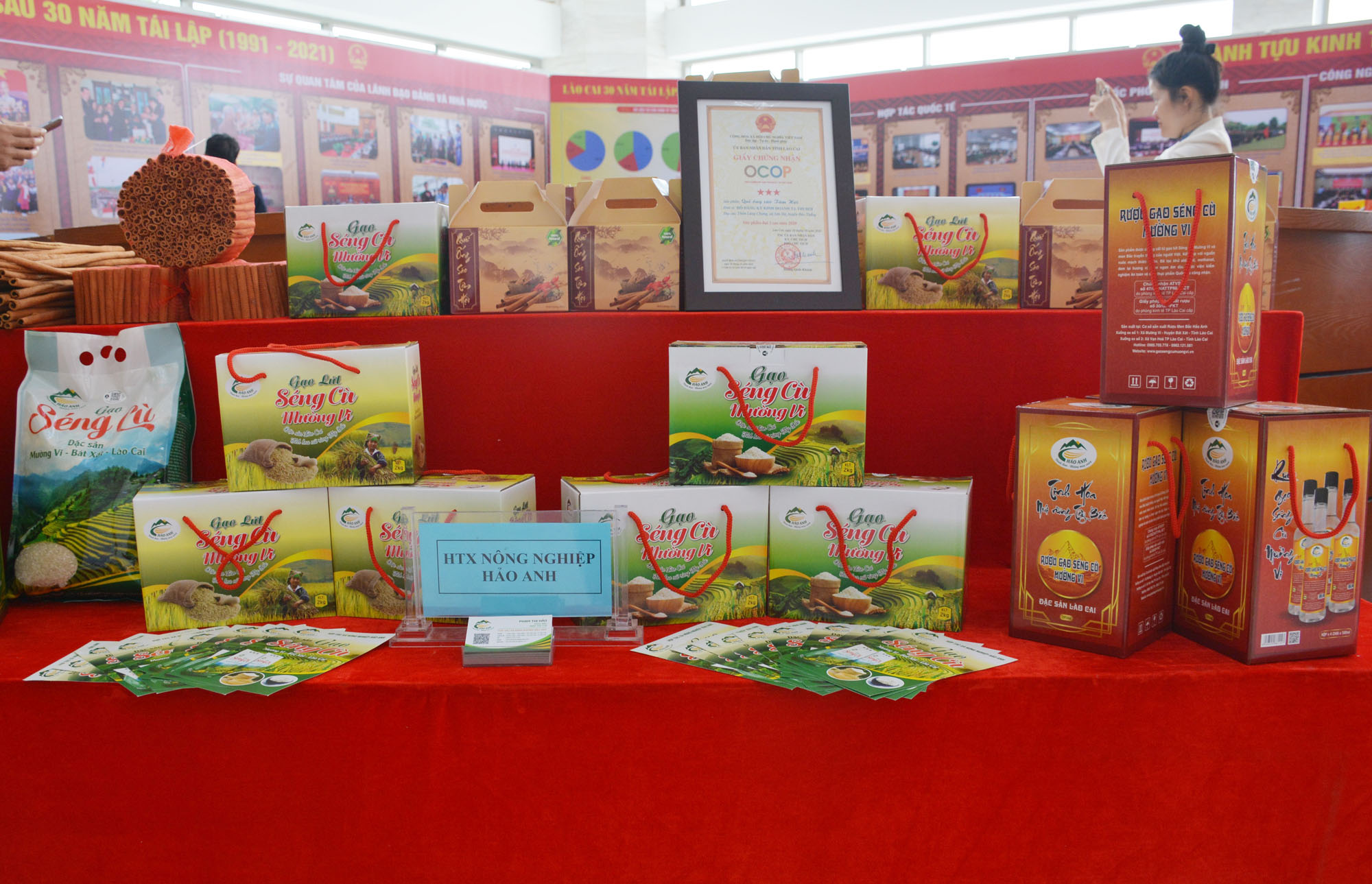Cooperatives participating in OCOP products development
Not only promoting production linkages, over the years, many cooperatives (cooperatives) in the province have actively and actively participated in the program "One commune, one product" (OCOP), contributing to improving the quality of life, improving product quality, increasing competitiveness, expanding consumption markets as well as creating motivation for cooperatives to develop.
Muong Khuong chili sauce is one of the OCOP products with stars.
The OCOP program is implemented by the province to develop the rural economy in the direction of developing internal resources and adding value. Over the years, the program has been deployed appropriately, adapting to the factors and laws of the market economy, and products towards the market's quality standards. Many products and goods of Lao Cai have been given stars, contributing to bringing goods from rural areas to the shelves of supermarkets, domestic and foreign stores, thereby improving product value.
Son Hoa Cooperative (Muong Khuong) initially operated with low efficiency without a specific development strategy, just created products without finding a way to approach the market. When participating in the OCOP Program, the cooperative's activities are associated with brand development for products. The OCOP program has created a playground, an opportunity for cooperatives to produce products with improvements in quality, packaging, designs, standards and market orientation, and adjust products to suit needs of market. Up to now, Son Hoa Cooperative is one of the typical cooperatives, taking the lead in the OCOP program of Muong Khuong district with 3 products that have achieved the provincial 3-star OCOP certification, including salted shredded village Pork, Muong Khuong braised meat and other village Pork products from Muong Khuong village are preliminarily processed.
According to Ms. Cao Thi Hoa, representative of Son Hoa cooperative, cooperatives need to invest in developing production associated with processing, connecting product consumption markets along the value chain, focusing on developing strong aspects of local. In the coming time, choosing outstanding products to develop is the first step, then gradually expand, invest in infrastructure, focus on producing high-quality products. “Our cooperative has mobilized and integrated capital sources to maximize the resources to effectively implement the OCOP Program. We also participate in trade promotion fairs connecting OCOP products consumption in modern distribution channels such as putting products on e-commerce trading floors.”.
By the end of 2021, Lao Cai province has 123 recognized OCOP products, many of which are owned by cooperatives. These products are local products and specialties such as Seng Cu rice, Muong Khuong chili sauce, Muc pomelo, Sa Pa salmon, dried pork, kitchen dried sausage, essential oils of lemongrass, Bao Yen cinnamon, ginseng vermicelli, apple cider vinegar, etc.
The OCOP program has expanded to localities, businesses, cooperatives, production facilities and tourism services throughout the province. The program has motivated the development of production areas associated with key crops and animals, strengths of traditional industries, trades and local specialties.
For the collective economic sector, when participating in the OCOP Program, cooperatives have formed economic linkage models, agricultural cooperatives, developed specialized farming areas, and produced goods associated with the application of science - technology, high technology. Production facilities, when implementing the OCOP program, have built a chain of links with households to purchase raw materials for production, typically tea products have 4,914 hectares with more than 6,000 participating households; artichoke has 65 hectares with 150 participating households; chayote Sa Pa has 120 ha with 250 participating households; Muong Khuong chili sauce has 120 hectares with 755 participating households; Ban Xeo vermicelli has 67 hectares with 250 participating households; Moc pomelo has 40 hectares with 130 participating households; Seng Cu rice has 400 hectares with more than 1,200 participating households, etc.
According to Mr. Truong Manh Hung, Chairman of the Provincial Cooperative Alliance, developing OCOP products is one of the important orientations, creating a driving force for the development of the collective economic sector, including cooperatives. Currently, the construction and development of OCOP products in cooperatives are facing difficulties, such as small and weak size, management capacity, lack of knowledge about market economy and products development along the value chain, etc.
In the coming time, the Provincial Cooperative Alliance will coordinate with specialized agencies to organize communication, raise awareness, methods and approaches to and deploy the OCOP Program to officials at all levels, to cooperatives and production bases to create a sweeping movement in the production and trading of OCOP products. In addition, continue to improve mechanisms and policies to support the development of OCOP products; promote the implementation of policies to support the development of small and medium-sized enterprises and cooperatives, support the development of products, brands of each product, specialized plans, specific, methodical and national orientation, etc.










